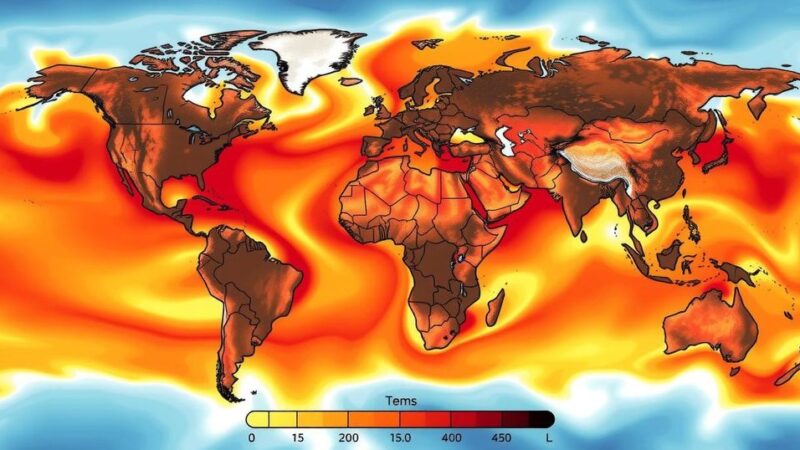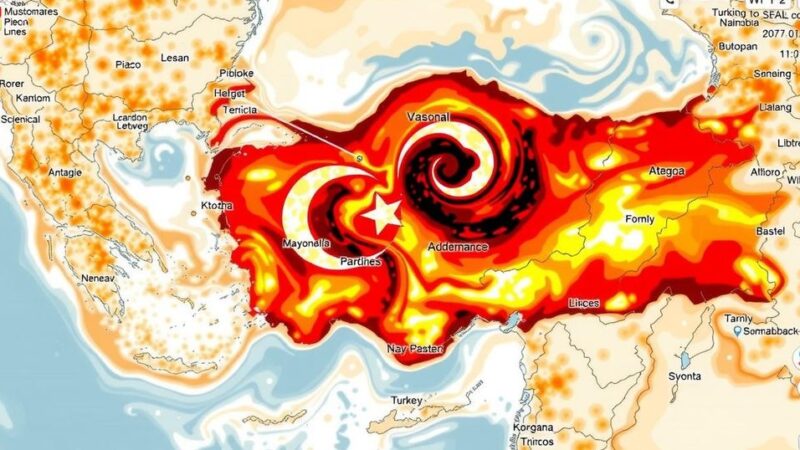Turkey recorded its hottest ever year in 2024, with an average temperature of 15.6°C, 1.7°C higher than previous averages. This ongoing heat trend is part of a global climate crisis affecting many countries. Rainfall also decreased significantly, leading to droughts and sinkhole formations in key agricultural areas. The connection between climate change and these extreme weather patterns is evident and raises urgent concerns.
In a recent announcement, Turkey’s meteorological agency declared 2024 as the hottest year on record within the nation, with an average temperature of 15.6 degrees Celsius (60 degrees Fahrenheit). This marks a significant increase of 1.7 degrees compared to the average temperatures recorded between 1991 and 2020. This unprecedented climate event reflects a broader global trend, with numerous countries reporting similar extremes. Notably, Turkey has experienced higher-than-normal temperatures continuously since 2007, with the exception of one year. In addition, the previous record of 15.5 degrees was established in 2010.
The report highlighted an alarming decline in rainfall, which saw a 6.3 percent reduction from typical levels, severely impacting the Aegean coast where rainfall dropped by 22.4 percent. This has exacerbated drought conditions that, combined with excessive groundwater extraction, have led to sinkhole formations in the central province of Konya, an area crucial for Turkey’s agriculture. Despite these evident climate challenges, the weather agency refrained from directly associating these phenomena with climate change.
Global climate data supports these findings; the United Nations’ World Meteorological Organization posits that 2024 stands as the hottest year globally. This alarming trend is further echoed by the Copernicus climate monitor from Europe, indicating that average global temperatures have surpassed the critical 1.5 degrees Celsius warming threshold recently. Such climate shifts necessitate immediate attention to avert further environmental degradation.
The context surrounding Turkey’s record heat in 2024 is situated within a larger global climate crisis whereby temperatures are rising sharply across various regions of the world. The report’s emphasis on Turkey’s heightened temperatures since 2007, barring 2011, mirrors patterns observed globally, suggesting a profound and ongoing impact of climate change. Additionally, the concerning trend of decreased rainfall, especially in agricultural areas, raises alarms about food security and environmental sustainability in the face of an increasingly volatile climate. The recent announcement by the WMO underscores the urgency of addressing these climatic shifts, reflecting a worldwide call for nations to mitigate the detrimental effects of climate change.
In summary, Turkey has marked 2024 as its hottest year on record, with average temperatures significantly exceeding historical norms. The ongoing increase in temperatures, alongside decreased rainfall and resultant drought conditions, poses substantial challenges, particularly for agricultural sectors. The global context of this phenomenon reiterates the pressing need for concerted efforts to combat climate change and its far-reaching consequences.
Original Source: www.barrons.com







